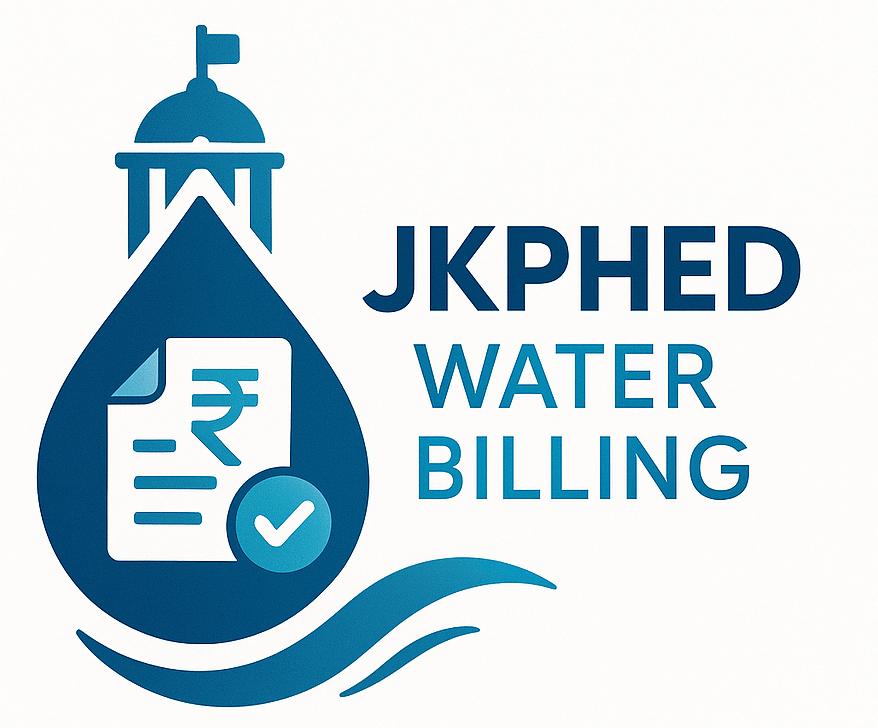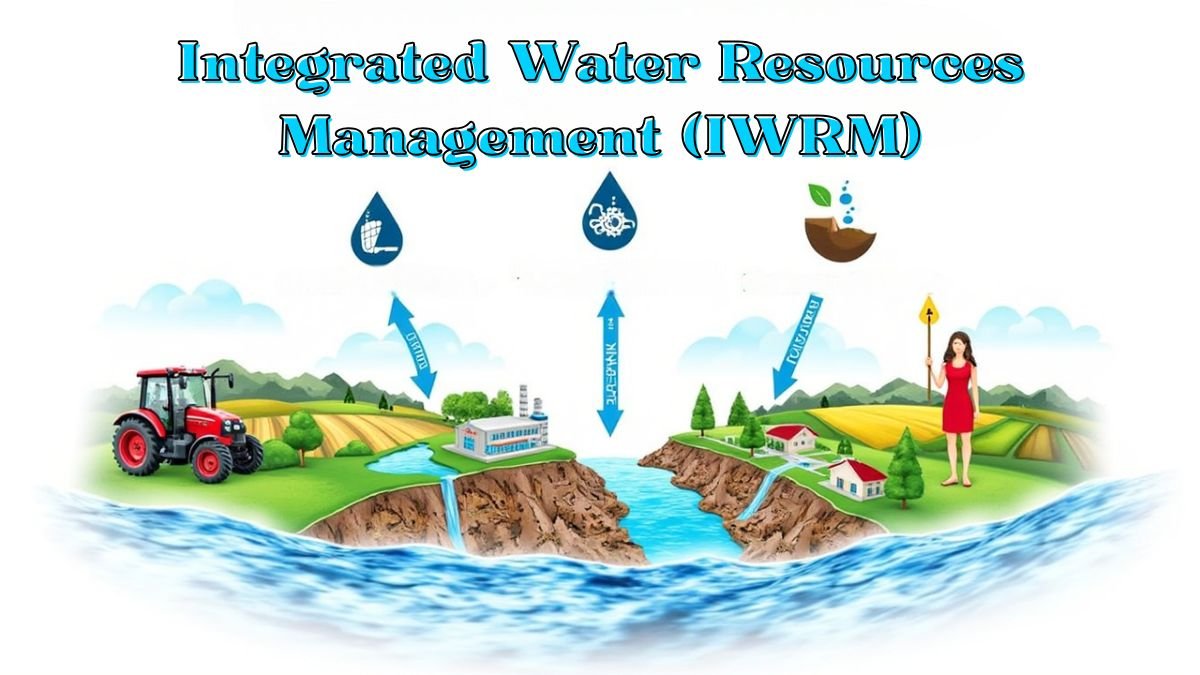Integrated Water Resources Management (IWRM) is a process that promotes the coordinated development and management of water, land, and related resources, to maximize economic and social well-being, without compromising the sustainability of essential ecosystems.

Why is IWRM Needed?
Traditional water management approaches are often fragmented and regional, leading to unsustainable use of water resources and poor services. IWRM addresses these problems:
- Interdependent use of limited water resources:
High irrigation demand of agriculture and polluted drainage flows mean less fresh water for drinking or industrial use. Contaminated municipal and industrial wastewater pollutes rivers and endangers ecosystems. If water has to be released into the river to protect fisheries and ecosystems, less water is available for irrigating crops. - Protecting ecosystems:
Water resources are an integral part of ecosystems, and their unsustainable use can cause environmental damage.
Key Principles of IWRM
IWRM is based on the following principles:
- Fresh water is a limited and vulnerable resource:
It is essential for sustaining life, development and the environment. - Participatory approach:
Water development and management should be based on the participation of users, planners and policy makers. - Central role of women:
Women have a key role in the supply, management and security of water. - Economic value of water:
Water has economic value across all its competing uses and should be recognised as an economic good.
Implementation of IWRM: Sudan’s Example
The United Nations Environment Programme (UNEP) is supporting the Ministry of Irrigation and Water Resources in Sudan to manage water resources and implement IWRM approaches. These include:
- Integration of domestic, agricultural, industrial and environmental needs:
Incorporating all these needs into water catchment management. - Encouraging the participation of all water users:
Ensuring the participation of all groups. - Emphasising the role of women in water management:
Empowering the role of women. - Striking a balance between economic efficiency, ecosystem sustainability and social equity:
Striking a balance between these three aspects.

Benefits of IWRM
- Protecting the environment:
IWRM helps in maintaining ecosystem sustainability. - Promoting economic development:
Efficient use of water resources promotes economic development. - Promoting participation in democratic governance:
Participation of all stakeholders increases transparency and accountability in governance. - Improving human health:
Availability of clean and safe water improves health.
Conclusion
IWRM is a holistic approach that ensures sustainable and equitable management of water resources. It is more effective than traditional fragmented approaches and provides environmental, social and economic benefits. The successful implementation of IWRM in countries like Sudan makes it clear that this approach can play an important role in the management of water resources.

